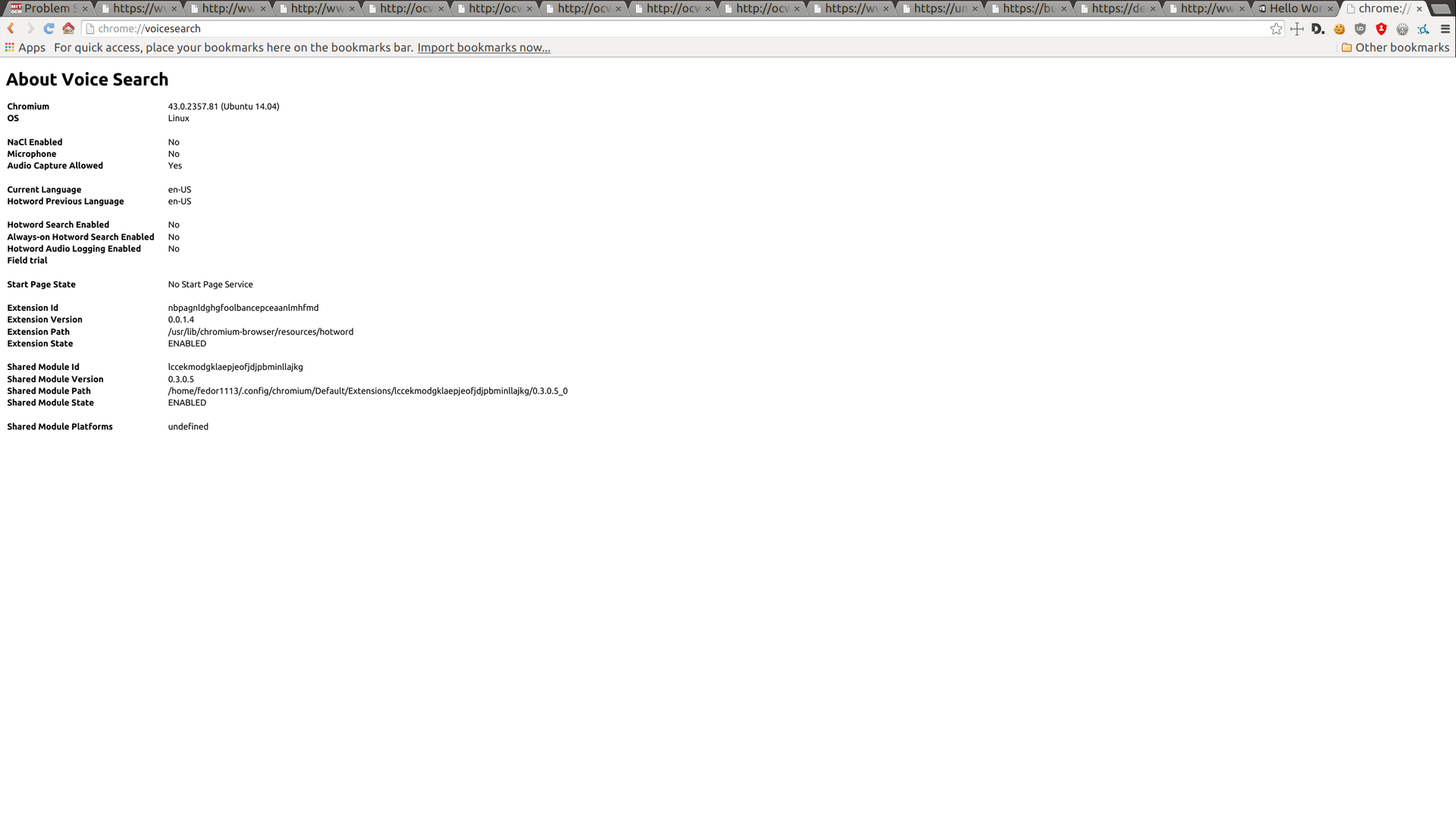Google implements proprietary code in free (?) Chromium

I did not see about this article on Habré and decided to write.
In general, the Google policy is sometimes amazing. “Chromium” from version 43 without the user's knowledge installs the hotword extension (web directory module, which contains the binary NaCl module), which is immediately loaded for the user's convenience, as Google says.
One of the users accidentally stumbled upon this and opened a bug. From this, in fact, it all started. The extension has access to the microphone and works with the “OK, Google” service. It is not displayed in the list of extensions, which is available to the ordinary user, because, I quote Google, “is component-extension ”. Which also means that if you succeed in displaying it with the remaining extensions by Google’s components that are part of Chromium (this can be done using the command line flag --show-component-extension-options), then it cannot be removed, since is a “managed” extension. However, it is stored in the folder with the remaining Chromium extensions in the subfolder / lccekmodgklaepjeofjdjpbminllajkg /
')
Theoretically, Google calms down, since Chromium is an open source browser, you can verify that it does not launch extensions until you tick (“OK, Google”) in the search window in the settings, although it downloads . Debian has already added a patch that adds the enable_hotwording flag, which is disabled by default. You can check the status of your Hotword at chrome: // voicesearch. Google does not see the problem ... Good luck in removing the extension, and let Open Source come with you!
So the chrome: // voicesearch page looks like mine (Ubuntu, deleted folder)

In general, it is very interesting to hear your opinion on this issue, how you are struggling with the problem, whether you are still using Chromium (for it is very convenient or for some other reason).
The original discussion can be read in English at: code.google.com/p/chromium/issues/detail?id=500922
Does this change your attitude to Chromium?
UPD 1: Since the article was in the sandbox, it could not have been a survey, but now decided to add.
UPD 2: Chromium developers have disabled the automatic installation of a proprietary add-on (June 23). Fortunately, Google has listened to the disgruntled community :)
Source: https://habr.com/ru/post/260907/
All Articles